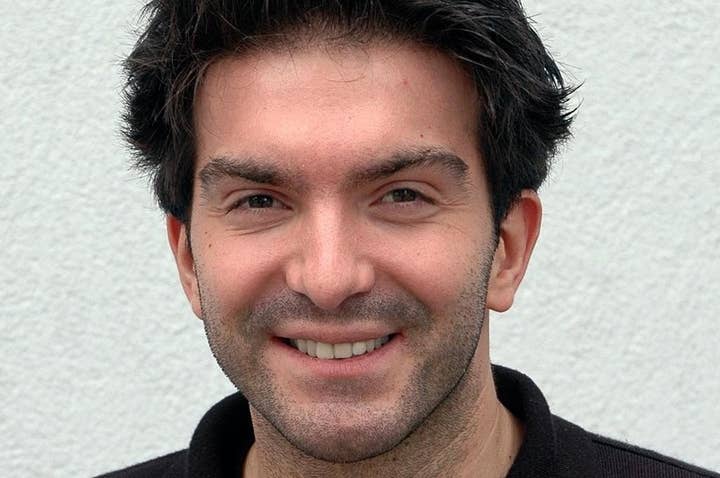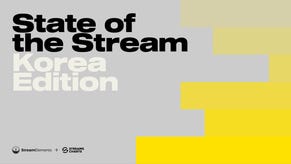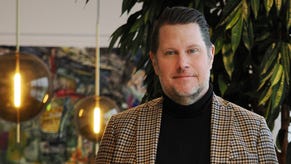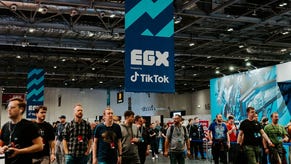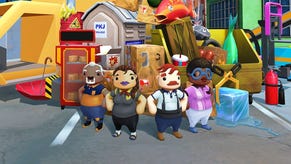Cevat Yerli: Crytek is "absolutely" safe
CEO discusses the price his company paid for a "painful" transition
Cevat Yerli has spoken at length to GamesIndustry.biz sister site Eurogamer about Crytek's recent woes and restructuring, talking openly about the difficulties of the company's ongoing transition to free-to-play and games as a service, as well as the details of downsizing and the rumours of missing staff payments.
Last month rumours began to circulate about trouble at the international publisher, with particular focus resting on Nottingham's Crytek UK studio, which was working on Homefront 2 for Koch Media. Elsewhere, job losses and missing salary payments were discussed, with several high-profile staff abandoning the company. For some time, Crytek appeared to be in freefall.
Then, the Yerli brothers struck a deal. An investor had been found, injecting a significant quantity of cash into the business and rescuing it from its death spiral. Who that investor is remains a secret, and one Yerli would not be drawn on in the interview, but he did confirm that he believes the company to be "absolutely" safe.
"The shift from retail products towards a game service, that's the one we are undergoing. As a result of this we have adjusted our entire strategy across the board for each game"
Still, the episode has left deep wounds. Crytek UK was sold off to Koch Media, along with the Homefront IP. Crytek's offices in Austin were downsized considerably, with the development of Hunt: Horrors of the Gilded Age transferred back to the company headquarters in Frankfurt. Headcount across the publisher has been reduced from around 950 to 700.
"We have been undergoing a transformation, just like the whole game industry," Yerli explained to Eurogamer. "Part of the transformation was of a financial nature, part of it was of a strategy nature, and part of it was of a reorganisation nature. The shift from retail products towards a game service, that's the one we are undergoing. As a result of this we have adjusted our entire strategy across the board for each game. We evaluated the games and looked at which do not fit in this strategy. This required additional investment, which led to temporarily diminished capital resources. But we are today fully prepared to deliver a game service. From a strategy perspective we are financially equipped towards that. And we have restructured the studios so we focus on Frankfurt, Sofia, Kiev, our Asian operations, and Budapest, towards delivering our strategy.
"Regards to Austin, we have downsized Austin to be our US hub for the engine business, and brought over Hunt to Frankfurt. Then in the UK we sold the Homefront IP as well as the Homefront team, which was pretty much the majority of the team, to Koch Media. That helped us in two ways: it was a strategic sell as well as downsizing costs so we are better equipped towards a future of games as a service."
According to Yerli, the root cause of the financial difficulties that ravaged Crytek was an ongoing attempt to move away from traditional boxed retail and embrace free-to-play, games as a service. However, when you have several AAA franchises on the go at once, something has to give.
"The primary cause was the transformation," said Yerli, when asked what touched off the crisis. "We're observing where the industry is going. We knew free-to-play or games as a service - online services in general - will become the future of gaming. We've known this for a while. But we were finishing up our retail games or still had them in development, with Homefront for example.
"There is never a not troubled development. Let's be realistic. Far Cry was troubled. Crysis was troubled. Every game that wants to say it's a high quality product will have challenges"
"But that shift required a whole different capitalisation, as well as additional talent pool and different types of spending and forecasting. All of that caused temporarily diminished capital resource, which we have now overcome. This was the main cause of the situation - the whole transformation of Crytek."
Yerli goes on to discuss the unexpectedly high costs of development in the US, saying that initial estimates were "off by a high margin," but that it wasn't a purely financial decision to move Hunt development to Frankfurt, but also a way to bring the game under closer supervision by the core engine team at headquarters.
Addressing the issue of staff payments, Yerli is keen to point out that all missed salaries have now been made up, clarifying that these issues affected management as well as developers. He also denies ever telling staff that they were 'lucky' to get paid in the first place.
"You have two choices, right? Either you delay payments - again delay... it's not that they didn't get paid, they got delayed - delay payments and salvage the company. Or, you push your cash flow directly to the studios and you file for insolvency. Both options are really bad. So you have to make the better of the two bad decisions.
"However, like we had promised to everybody - and we said the company is not at a big risk, not a danger, it just needs more time to salvage it and that's what we did. Now, everybody got paid plus inconvenience payments additionally to that, like we promised everybody," the CEO continued.
"Some people were very impatient and got angry at the smallest delay. Also, there was a critique of us not being proactive in communication, which we don't understand, because we had been frequently in the UK as well as every other studio, talking about potentially rough times. And we had even shared with people how they should maybe work with different banks at a personal level to prepare. Or, if not, they could make a choice to resign and look for other jobs.
"That transformation was painful. We paid the price. Now we come out of it much stronger"
"But our priority was to not downsize the company. Our priority was to not let anybody lose their jobs at that point. Because if a company gets into a difficult situation and you know the outcome is going to be bad, you have the choice to downsize everything. But we haven't done that because we wanted to keep everybody tied together as a team.
"I was surprised and upset a little bit that the intention of us keeping together everybody upset a few of them. But I understand that situation. Some people live in very tight financial planning. That's their own privacy. They can do whatever they want. Those guys, when they get under pressure it can become emotional. We tried to individually help out. Like if somebody gets in trouble they can talk to us directly so they don't get under pressure. We tried whatever we could do. But you can't make it right for everybody."
Crytek was never in danger of going out of business, Yerli maintains, and he has high hopes for the future.
"Surely it will to some degree," he replied, when asked if the last few months have damaged Crytek's reputation. "But I hope through communication we will have more frequently people and gamers will understand through our words and actions we have the best interests of PC gamers. At Gamescom we will show off our games. With online services we will be equipped to better react than ever before to communities and gamer demands. That's ultimately what we want to build - the best experiences driven by the community.
"That transformation was painful. We paid the price. Now we come out of it much stronger. I hope people will see through our games these are not just empty words."
Read the full interview over at Eurogamer.
